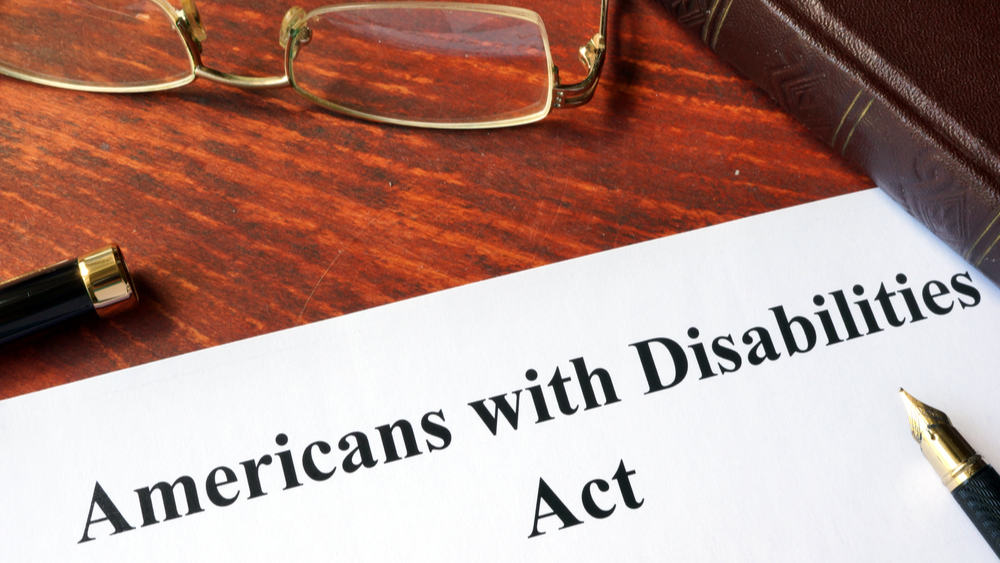[ad_1]
I am a single mother of two sons on the autism
spectrum. I am beyond frightened and concerned about shifts to online-only
learning. You cannot leave a child alone in the home who has high needs, at any
age. Online-only instruction is not a solution for children who need wraparound
services, for children from single-parent households who may not have the
supports to work and supervise online classes, and for parents like me whose
children have intellectual, physical or emotional disabilities.
First,
students with disabilities, particularly those with intellectual and
developmental conditions, face remarkable challenges in education and health care
access during this time of lock down orders, distance learning and telehealth.
The consequences of not having sufficient and efficient solutions lowers the
quality of life for them and their families as well as causes or exacerbates
regression in key developmental areas. The most significant of consequences are
the avoidable fatalities and injuries that can occur because of a lack of
cognitive awareness or a heightened emotional state that results in not being
aware of the environment. The mental health toll on primary caretakers can also
not be underscored, and the rise of depression amongst all family members
should be better documented – especially when considering the financial burdens
on families for myriad reasons during the pandemic.
The
elephant in the room in creating sustainable solutions for families of children
with disabilities is implicit bias. So many government agencies, particularly
child services and other health and human services agencies, continue to
operate from the foundation laid by the refrigerator mom theory. This theory, developed by Leo
Kanner in 1943 and promoted widely by Bruno Bettelheim in the 1950s and 1960s,
both Freudian scholars, stigmatized a whole generation of mothers by faulting
them for their children’s disabilities and mental health conditions. It was
through this theory that many children – particularly children from low-income,
immigrant and Black communities – were displaced from their maternal homes and
put into institutions.
At
this time, segregation was a pervasive and socially acceptable practice, even
after the victory of Brown v. Board of Education in 1954 and the passage of the
Civil Rights Bill of 1964, families of children with disabilities continue to
experience challenges in maintaining custody of biological children. This
history and trauma is not lost on Black moms and moms of children with
disabilities. It is a constant fear, and when resources, such as school, are
taken away, this fear is heightened.
Even
today, we know that parents of kids with behavioral health needs are the ones
getting referred for child protective services. Those services are colonial, because
the metrics used to evaluate cases are not in favor of birth families,
especially birth families of color. Those of us in vulnerable positions may
face automatic referral to child protective service, dislodging parents’ rights
in the process for basic needs.
In
centering an understanding of these issues, I want to be clear on what is not
my opinion. It is not my opinion that child protective services is the first
line of defense when engaging vulnerable families such as those with children
with disabilities and special health care needs, including mental health.
Particularly for those who have intersectional identities such as being Black
or Brown, low income, undocumented, housing insecure or who are in a multigenerational
household with multiple members of the family unit with disabilities, it is
important to unpack the historic trauma accrued when seeking help within the
system. The knee-jerk referrals to child
protective services
and the disruption of home life that is commonplace create significant distrust.
That is the opposite of the positive and family-centered solutions that are needed
now more than ever.
Next, there is a huge technology gap that impedes online only
instruction. In the Washington, D.C., area where I live, 40%
of families are off the grid, meaning they haven’t
had contact with a school administrator. The school district has started to
hand out Chromebooks, but they are way behind in terms of who gets to access.
Beyond that, not everyone who receives a computer will have internet connectivity
in the home. There is also a cultural practice of using technology, meaning
that if families do not have that experience, a Chromebook and internet connect
will not be enough to help them remain connected with school. Further, for
children with intellectual or emotional disabilities, having a computer and
internet access means little if the child does not have the cognitive capacity to
use a computer.
Now more
than ever, families need real and sustainable solutions that level the playing
field when it comes to accessing supports and services for children with
disabilities. There must be a triage system to evaluate unique needs and then
identify resources to meet those needs.
Being home
all day without access to community resources such as school, recreation or
other programs or activities puts families in vulnerable condition. For parents
of children with disabilities, school is essential. It is time we have this
conversation and continue to have it until there is a sea change in how we
think about school reopening. Sadly, 30 years after the Americans with
Disabilities Act, we are still failing children with disabilities.
Chioma
Mary Oruh, Ph.D., is a proud mother of two brilliant sons with autism who
currently attend nonpublic schools and have attended both traditional public
and public charter schools in Washington, D.C. After many years of service as
an educational advocate, collaborating and partnering with several nonprofit
organizations and government agencies, Oruh has branched out to establish Chi
Bornfree, LLC, a single-member company providing parent advocacy coaching,
business consulting and other education and health care-related products.
[ad_2]
Source link

